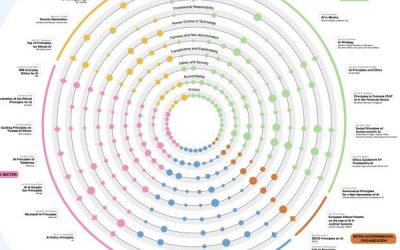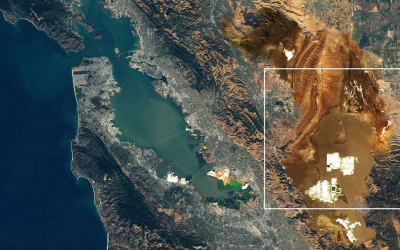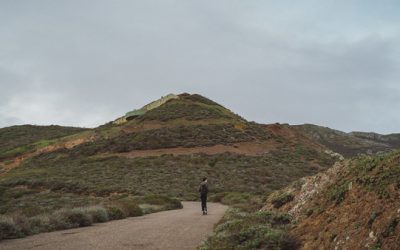Newsletter
A monthly dispatch at the intersection of technology innovation and social justice. Insights and news about technology impacts on society and how society can strike back.
EDITORIALS & EXCERPTS
The ID.me backlash: facial recognition and citizens’ options in the digital state
The last frontier of digital welfare dystopia is facial recognition. In an article on The Atlantic, Joey Boulamwini, founder of Algorithmic Justice League, turns the spotlight on the increasing number of services in the US demanding biometric data to be accessed....
NFTs problem with interoperability
Imagine. You are a proud avant-gardist who invested the amount of a flight to an exotic country (a good as luxurious as three villas, these days) in a JPEG of an Elon Musk-themed "Moon Ticket" stored somewhere on the internet. The NTF wave rang at your door, and this...
Three prompts to navigate 2021
The year started with an in-real-life memes invasion of US Capitol, a brutal call to reality for the hopes that the calendar’s turn would be the salvific dawn of a new era. In War and Peace, Tolstoj wrote that a real general never finds himself “at the beginning of...
Goodbye planning, welcome place-making
2020 ratified the end of linear planning. The idea of programming as a reassuring navigation exercise between signposts - a certain revenue threshold, clients, project calendars, but also personal calendars, holidays, celebrations, wrecked. Think of 2020 as an...
All problems can be illuminated: on leadership and role models
Coinbase is a cryptocurrency exchange platform which mission statement is “to use cryptocurrency to bring economic freedom to people all over the world” (🤦🏻♀️#BlockchainTaMère). This week, its CEO Brian Armstrong pointed out in a statement that the company doesn’t...
New look, new work published
I can’t get rid of the feeling that the new year starts in promising September instead of depressive January. So, I took advantage of Summer to refresh my website and get a proper visual identity. Let me know your thoughts! I am the lead author of the...
Prosume wins the Blockchains for Social Good Prize
You know I am a blockchain-hype skeptic, but last year I had the chance to collaborate with a company active in the energy industry, Prosume, which makes reasonable use of blockchain. Its objective is facilitating the transition to renewables, as well as the prosumers...
Police do not prevent crime
One of the best kept secrets of modern life (…) is that police do not prevent crime. The quote is from Police for the Future by the expert in criminal justice and policing David Bayley. The book was written more than 20 years ago, in 1996, but it is still of great...
Divide et impera
It is a great temptation to picture the digital divide as somebody walking hours to load Internet Explorer on Window 95 in a remote hut. Unfortunately, the digital divide takes also the shape of your aunt forwarding pseudo-science on Whatsapp. Last year I worked on...
The EU Digital Policy package: a recap
Today was the day. The European Commission presented its digital policy package. The first meta-component is an overarching strategy for the digital society, which has three objectives: tech should work for people; fair and competitive economy; open, democratic and...
4 Things to watch out for in 2020
#1 Big corps making themselves the default option in further fields. Amazon Braket provides a single environment to design, test, and run quantum algorithms without having to setup and manage infrastructure and code. Amazon is also working on Sidewalk, a new wireless...
Environmental Intelligence and Deep Adaptation
What if an AI acting as “environmental manager” were to transform the planet regardless of human interest? “A central argument made by those encouraging the uptake of AI, is that data-driven systems can depoliticize or neutralize decision making. Extended to the...
Everyday geopolitics: cloud, IoT and smart spaces
A while ago I organised a panel discussion around the working concept of “spaces in-between”, an attempt to put a name on what is left out of the pure binary logic of algorithms and pretentiously “objective” data-driven inferences. At the time I was mainly thinking of...
The broadcasting internet
June 2019 has been defined as a milestone in Google’s evolution from search engine to walled-garden. Data from 40 million US browser-based searches show that roughly half of Google searches does not lead to any click. This means that half of organic search (“googling”...
Thoughts for the Anthropocene: click water before leaving the Planet
For some sort of cognitive bias, we tend to think that what is on a map is actually mapped. The time Earth exploration was a journey on a vessel designing new cartographies is remote in our imaginary. We think we mapped it all. Nonetheless, we call the Earth the “blue...
Into the wild privacy
I’d like to think of privacy as an experience, taking place in a free off-the-record space where we can just do and be. An experience implies a range of experience, a range of possibility where experience can actually take place. A range of possibilities welcomes in...
The devil wears optimisation
I have to admit that in the increasing appropriation and marketing of the “tech for good” debate by big tech, “tech for evil” approaches become very appealing. For instance, we can look into a desirable evolution of the technology presence in our life by speculating...
The other way around
A recent paper about cognition constraints in digital and physical spaces shows that it is not so straightforward to accuse technology of downgrading our nature. Researchers found that individuals exhibit a conserved capacity that limits the number of applications...
Electric Flanerie
What are your feelings with presence and traceability? I am not talking about mere privacy matters, but a sense of agency, self-awareness, liberty. Disappearing is becoming a fine art, an act of freedom. In our Millennials workshops, it keeps coming up. In order to...


















